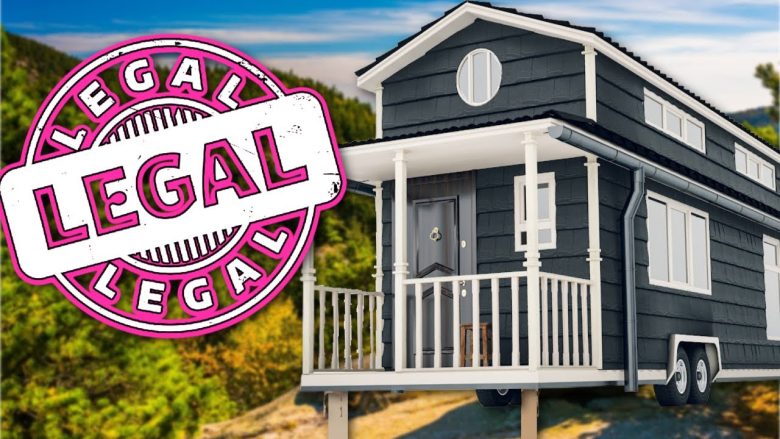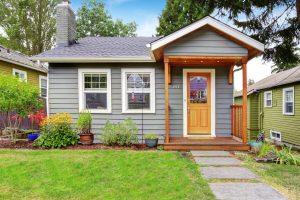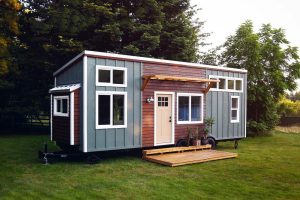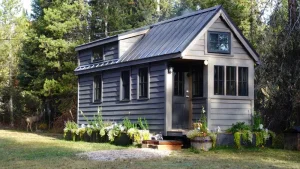Tiny houses are gaining popularity as an alternative lifestyle, as they offer a simpler, less cluttered way of living. These small living spaces have many advantages, such as lower environmental impact, lower costs and greater mobility. But before moving into a tiny house, it’s important to understand the legal issues involved.
Zoning Rules:
Zoning rules are one of the most difficult legal issues in small homes. Zoning rules determine what may be built on a piece of land and how it may be used. Depending on how the tiny house is laid out, it may not be possible to place it on a certain piece of land.
In some places, a small house is called an ancillary housing unit (ADU) and can be placed on the same piece of land as a larger house. In some places they are called recreational vehicles (RV), meaning they can be parked in RV parking lots. But some cities have minimum square footage requirements for permanent residences. This can be a problem for those who want to live in a tiny house.
Safety Codes and Building Regulations:
Compliance with building codes and safety standards is also very important. Although tiny houses are small, they still need to be built in a certain way to keep the people who live there safe and healthy. These rules cover things like electrical systems, plumbing, insulation, and the stability of the entire building.
Before you build or buy a tiny house, you should know the building rules in your area and make sure your tiny home follows them. Working with someone who has experience building tiny homes can help you figure out how to meet all of these needs.
Who Owns the Land and where to Park:
Another legal point to consider is where to park your tiny house. If you want to build your tiny house on a piece of land, you’ll need to find out who owns it and make sure it’s in the right area. If you are considering parking your tiny house on a motorhome parking space, also read the rules and protocols of the park.
Legal Issues:
While the trend of tiny homes is growing, it has also run into legal issues in some places. Some places have strict regulations that make it difficult to live in a tiny house full time. Small-scale living may also be restricted by rules from local homeowners associations and neighborhood covenants.
Financing and Insurance:
In addition to zoning and building codes, finances and insurance are important considerations when living in a tiny house.
Financing:
Financing a tiny house can be different from financing a regular house. Since tiny homes are not as common as other types of homes, getting a mortgage may not be easy. Some build their own tiny houses with their own money, others look for other ways to cover the costs, such as personal loans or tiny home lenders.
To find the best financing option for your situation, do your research and compare different options. Before agreeing to a financing plan, make sure you understand the rules, interest rates, and payment plans.
Coverage:
Despite their small size, tiny houses need protection just like any other. However, because tiny houses vary so much, it can be difficult to find insurance for them. Some insurers have special programs for tiny homes, while others treat them like RVs or mobile homes.
If you purchase insurance, tell them about the construction and materials of your tiny house and how you will use it. This will help your insurance company determine what kind of coverage you need.
Changing Rules:
It’s important to remember that as tiny houses become more popular over time, the rules regarding tiny houses may change. Legal issues that may exist today may change in the future as governments and cities adapt to new housing trends.
Being aware of the latest changes in the law and talking to local authorities will help you deal with any changes that may affect the way you live in a tiny house.
Conclusion:
Ultimately, living in a tiny house is a unique way to combine simplicity and sustainability. But it’s important to understand how the law works. Zoning regulations, building codes, financing, insurance, and even off-grid living versus renting decisions all require careful consideration. By following the new rules and seeking professional help if necessary, your small family can continue to travel safely. Knowing and following the legal details will allow you to move into a tiny house with confidence and enjoy the benefits of a simple life while feeling confident that you are acting legally. Enjoy the charm of living in a small space as you learn about the laws that govern that space for a peaceful and legal experience.
FAQs:
1. Are tiny houses legal everywhere?
No, the legality of tiny homes varies with local zoning laws and regulations. Some regions have adopted microhomes, while others have strict requirements that may limit their placement and use.
2. How do I know if I can legally live in a tiny house on a certain property?
Research local zoning and building codes. Check with your local planning department for more information on regulations pertaining to ancillary housing units (ADUs), small homes, and RVs.
3. Can I park my tiny house anywhere?
Generally not necessary. Many boroughs have specific rules for parking tiny houses. This may be allowed on private property, RV sites, or designated small residential communities.
4. What are the building codes for small homes?
Building codes vary by location. Tiny homes often have to meet safety, sanitation, energy efficiency, and structural integrity standards. Consult a local building officer or a professional experienced in building small homes.
5. Can I apply for a mortgage for my tiny home?
Getting a mortgage for a tiny house can be challenging due to its non-traditional nature. Some lenders offer personal loans or specialized financing for small homes, but the terms and conditions may differ from traditional mortgages.



